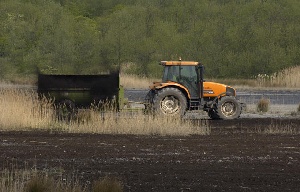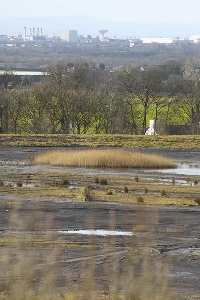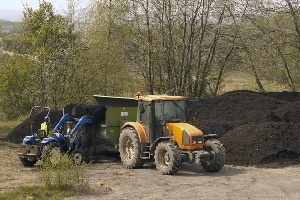|
TRAILBLAZER SITE REGENERATION FIRST TO ESTABLISH NATIVE PLANT
COMMUNITIES

WRAP (Waste &
Resources Action Programme) announced the launch of its 1st
brownfield trailblazer site to use high quality compost to help
establish native plant communities, creating natural wildlife
habitats. The former colliery site at Cronton in Knowsley,
Merseyside was partially restored in the 1990s - following removal
of the colliery buildings and other industrial infrastructure – when
major earthworks and tree planting were undertaken.
Since then, The Northwest Regional Development Agency (NWDA), the
current owner of the 43 hectare site, has carried out extensive
environmental and drainage improvements. The Land Restoration Trust
has been working with NWDA on proposals for the site’s future
restoration as public access land within a framework of natural
habitats. The Trust provides long-term management solutions for
public open spaces and reclaimed sites, and is working with WRAP on
trials which aim to encourage the establishment of native plant
communities on the colliery spoil.
In the trials, more than 400 tonnes of BSI PAS 100:2005 compost will
be applied to help improve nutrient-poor topsoil conditions, which
are effectively stalling plant establishment. The areas will then be
seeded with low-maintenance native grass species, creating
sustainable plant cover, whilst simultaneously offering significant
opportunities for improving local biodiversity.
This light touch approach of improving soil conditions for native
plant growth is innovative in the restoration sector, which normally
aims for a final sward of high-input amenity grass species. Not only
does this approach incur long-term maintenance costs, but it
potentially restricts biodiversity. Encouraging threatened native
communities - such as dry acid grassland - will not only reduce
on-going costs, but offset the loss of such valuable habitat to
development and agriculture elsewhere.
Peter White, Executive Director of Infrastructure and Development
for the NWDA, said:- "The Northwest contains approximately 23%
of the country's derelict and under-used land. Developing new
solutions to deal with brownfield land remediation in a
cost-effective and sustainable manner is therefore clearly
important. We are pleased to be able to provide an opportunity for
WRAP to undertake field trials of this innovative soil improvement
technique at Cronton."
The trial will inform
the plans for the full restoration of the site later in the year,
which is being funded by national regeneration agency English
Partnerships, as part of the National Coalfields Programme. Knowsley
Metropolitan Borough Council, the Forestry Commission and
environmental consultants TEP are also involved in devising the
restoration master plan for the site.
David Evans,
Community Engagement and Policy Director at the Land Restoration
Trust, said:- “The restoration strategy for the project is to
take a long term approach, maximising..."
...continued... |

...continued...
"...the use of existing site
resources and working with what we had rather than importing topsoils. Using PAS 100 compost made from garden waste fits with our
ethos to use recycled material and to take an ecologically-informed
approach to site restoration, offering appropriate soil nutrient and
structural properties to establish native grasslands.”
The compost for the project, which started in January 2007 and is
due to be completed in March 2008, was sourced from White Moss
Horticulture, in Kirkby Merseyside.
Pilot projects at other sites conducted in conjunction with WRAP
which look at the benefits of using quality PAS 100 compost as a
soil improver, have shown significant improvement in both cost
efficiencies and the quality of the soils. In some cases, costs have
been reduced by over 50 per cent*. Technical benefits of using PAS
100 compost to improve soil conditions include improvements in:-
* nutrient and organic matter content;
* soil structure; and
* water retention capacity

Paul Mathers, Key
Account Manager for Brownfields at WRAP, said:- “Previous
trials have shown that using locally sourced PAS 100 quality compost
as a soil improver, not only saves transportation and landfill
costs, but also produces high quality, fertile soil for sustainable
landscaping. This trailblazer project is taking an innovative
approach to the use of compost in brownfield regeneration, as the
relatively low but steadily released nutrient content of compost
provides ideal and sustainable growing conditions for native plant
communities, which helps encourage biodiverse ecosystems.”
The BSI PAS 100:2005 certification means that the compost, which is
produced from source segregated green waste such as grass cuttings,
prunings and leaves, has been manufactured to a consistent high
quality level and is also safe, reliable and sustainable.
For more information on how BSI PAS 100:2005 compost can help reduce
the cost of brownfield regeneration projects, contact Paul Mathers
at WRAP on 01295 817899 or visit
www.wrap.org.uk/composting.
|

